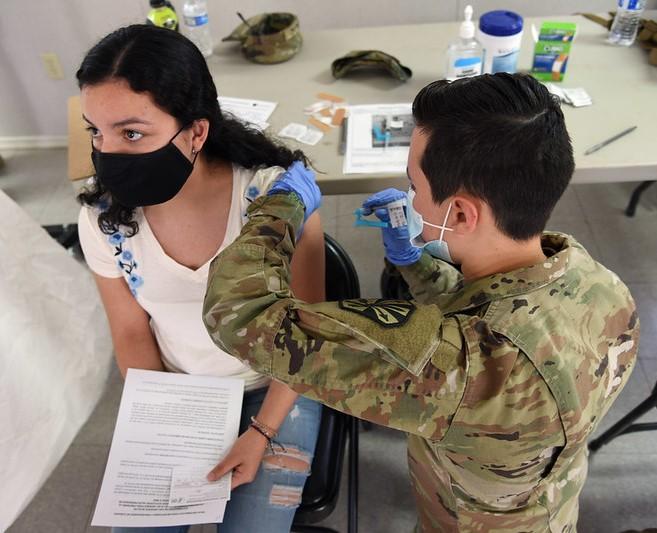The daily number of new COVID-19 cases continues to drop across the country, to tallies not seen since 15 months ago, when the pandemic began. But new Centers for Disease Control and Prevention (CDC) data show that young adult vaccine uptake is below that of older adults.
The United States reported 3,892 new COVID-19 cases yesterday and 83 deaths, according to the Johns Hopkins COVID-19 tracker. Those numbers contribute to a 7-day average of new infections of 11,308, a 23% decline over the previous week, according to data from the Washington Post.
New daily deaths fell by 19.7% in the past week, and COVID-19–related hospitalizations fell by 8.4%.
These dramatic declines from the peak of COVID-19 activity in January are due to widespread vaccination.
The CDC COVID Data Tracker shows that 379,003,410 COVID-19 vaccine doses have been delivered in the United States, and 317,966,408 have been administered, with 149,667,646 Americans fully vaccinated (65.4% of adults have at least one dose of vaccine).
11 states lag in older adult vaccination
If President Joe Biden hopes to meet the goal of vaccinating all Americans over 18 with at least one vaccine dose by the Fourth of July, several states will have to dramatically increase vaccination efforts.
Today the New York Times reported that in 11 states at least 20% of adults over 65 still haven’t received a vaccine dose.
As a whole, 87% of older Americans have at least one shot, but in Alabama, Arkansas, Louisiana, Mississippi, North Carolina, Tennessee, Georgia, Idaho, Missouri, West Virginia, and Wyoming, that percentage drops below 20%.
In related news, Politico reports that as a whole, states' incentives to encourage vaccination, including million-dollar lotteries and other prizes, have done little to significantly affect vaccination uptake.
Lower young adult vaccine rates
In two studies published today in Morbidity and Mortality Weekly Report, the CDC tracked vaccination rates among US adults.
The first study shows that, by May 22, 57% of people ages 18 and older had at least one dose of COVID-19 vaccine, with coverage highest among persons 65 years or older (80.0%) and lowest among those 18 to 29 (38.3%).
Since mid-April, weekly COVID-19 vaccine initiation rates have dropped among all age groups, to between 1% and 3%. If weekly initiation rates remained the same as the week of May 22 , coverage by the week of Aug 29 is projected to reach 57.5% for adults 18 to 29 years, 71.4% for those 30 to 49, 85.9% for those 50 to 64, 94.9% for those older than 65 years, and 78.4% for those younger than 18, the authors wrote.
"Despite expanded eligibility to all adults in the United States by April 19, 2021, vaccine initiation among persons aged <65 years has not increased at the same rate observed in earlier periods among persons aged ≥65 years," the authors concluded, emphasizing the need for outreach to young adults.
In a related study, the authors conducted a panel survey of more than 8,000 adults ages 18 to 39 on vaccination and found that 24.9% said they probably or definitely would not get vaccinated. The primary reasons cited among those refusing vaccines was lack of trust in COVID-19 vaccines (56.5%) and not believing that a vaccine was necessary (36.4%).
To encourage these adults to get vaccinated, the authors said emphasizing vaccines as a way to resume normal life would be key.
"Adults aged 18–39 years who were unsure about getting vaccinated or probably going to get vaccinated reported that a desire to protect others and resume social activities were motivators to get vaccinated, suggesting that messages emphasizing that vaccination would allow them to resume social activities and encouraging vaccination for the greater good might be effective," the authors concluded.
Other US developments
- A federal judge late Friday granted an injunction that prevents the CDC from enforcing conditional sailing orders for cruise ships during the pandemic, CNN reports. The judge ruled that Florida would be harmed if the CDC orders, which state officials said effectively blocked most cruises from sailing, were to continue.
- Some New England hospitals are delaying or rescheduling surgeries because of a shortage of blood donations during the pandemic, the Associated Press reported yesterday.






















